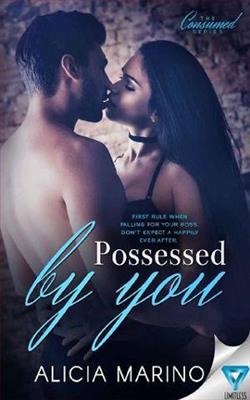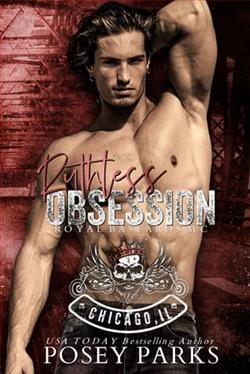Page 33 of I'm Not Yours
I sat against a tree trunk, scared of the shadows and creepy noises, rain dripping off my face. But it was there, under the leaves of the apple tree, that I knew I was done. The unknowns in the apple orchard were less scary to me than the knowns of being in the trailer with my dad. I could not live like that anymore. I thought of my mother and her love and her hugs, how we made apple pies together, along with peach, blackberry, rhubarb, lemon meringue, and dark chocolate pies with whipped cream. She would not want me to live like this.
I had saved money from my job as a retail clerk in a highend clothing shop and hidden it from my dad. I spent only what I had to on food, I probably should have spent more so I wasn’t so hungry, but I wanted money stashed away for safety and for my eventual escape even more than I wanted the food. I was on hourly wage and commission. There is nothing like being hungry to make you sell things well, and quickly, so I made a lot of money for a sixteen-year-old. Plus I understood clothes and style, taught by my mother.
I would use the money I had saved to make a new life.
The next day was Saturday. I sat, frozen to my bones, in the apple orchard until I knew my dad had left for his weekend job hauling rock. Before he left he stood outside the trailer and hollered my name, alternating it with swear words, and “Get the hell home,now, Allie!”
I stayed hidden behind the trunks of the apple trees, and after he had shoved his ungainly body into his truck with the bullet holes and sped off, I took a shower, packed a bagful of clothes and the treasures I had from my mother—including the broken china plates, the locket, and the harmonica—and left the trailer.
I went to my favorite teacher, Mr. McRose, so scared I could hardly talk. He was about sixty, his wife was an attorney, and they helped me become an emancipated minor. I had often been an angry student. I had gotten into fights, sometimes even with my fists, with other kids. I had a short fuse. I was taking it on the chin at home, so I wasn’t going to take it at school, too.
In some twisted way, it made me popular because it made me intimidating, cold, and tough. A real rebel who had her own cool clothing style and who had affected a swagger. But Mr. McRose reached out a hand to the desperate kid who was faking that swagger.
I lived in the apartment above their home. They insisted I live there for free; I insisted on paying two hundred dollars a month. They only acquiesced when I started to walk away. “I won’t take charity. I’ll pay you or I’m leaving.”
Mr. McRose cried, and his wife led me up the steps. My apartment was bright, yellow, cozy, clean, with lots of windows and a lock to keep my dad out. I loved it. It was the first time since living with my mother that I lived without fear.
My dad threw impressive fits. He even came to school, steaming, blowing smoke, threatening. Twice. The police were called. He went to the McRoses’ house, hammered up on alcohol, screaming for me. The police were called again.
I had to take out a restraining order on him after he clocked me in the face and broke a window in my apartment with his fist.
The McRoses, who I’m still close to, helped me. I stayed in school. I worked full-time. I saved everything I could. The teachers adopted me for the next three years at Christmas. I was given boxes full of food and used, but really nice, household furniture. New coats, new boots, new sweaters. I’d never had new clothes. A new red purse, I remember that, from Mrs. McRose. And, most helpful, a new bike. That bike helped hugely because I could bike to work instead of taking the bus or walking, and I could bike away my pain down charming roads in the country. It was my freedom and my survival.
It was the first time I felt cared for. The McRoses liked me. The teachers liked me. I hadn’t felt liked in forever. That helped me even more than the gifts. I have never forgotten their kindness.
I nailed the SAT because I was hell bent on going to college and I studied for months. An education was my way out of poverty. I had a 4.0 grade point average. I had excellent recommendations from teachers who were honest about my circumstances and told college counselors that I had persevered against heavy odds.
I got a full-ride scholarship.
I moved on. I moved forward.
I didn’t know what else to do.
11
“Let’s talk over dinner, Allie.”
I sank onto my dad’s couch with my mother’s red-and-white flowered quilt on it, my head in one hand, my phone in the other. I had returned late last night from my trip and I knew Jace was not happy. He was a kind man, but he was a proud man, and he was frustrated with me, with us. He did not like getting the runaround. I got it.
“Jace . . .”
“I have calzone and salad and I’m bringing it down to your place.”
“Jace—”
“Jace what?” he snapped.
“I’m—”
What to say?I thought of you my entire trip and I’m wiped out and I have no resistance against you at all . . . I can’t wait to see you . . . I can’t believe I’m thinking very seriously of moving, because then I would never see you; but it would be another form of hell to stay here and be near you as your life goes on . . . I have missed you since Yellowstone . . . I love you and I want to jump into bed with you more than I’ve wanted anything.
“You’re what, Allie? No, hold that thought. I’m coming down and you’re going to eat Italian with me.” He hung up.
I stared at the phone, then looked up at his architecturally stunning, warm, safe house on the hill. He would do what he wanted to do. He would be here in five minutes.
I ran for my closet and my lipstick.
It is amazing what a woman can do for her looks in five minutes, if pushed.















